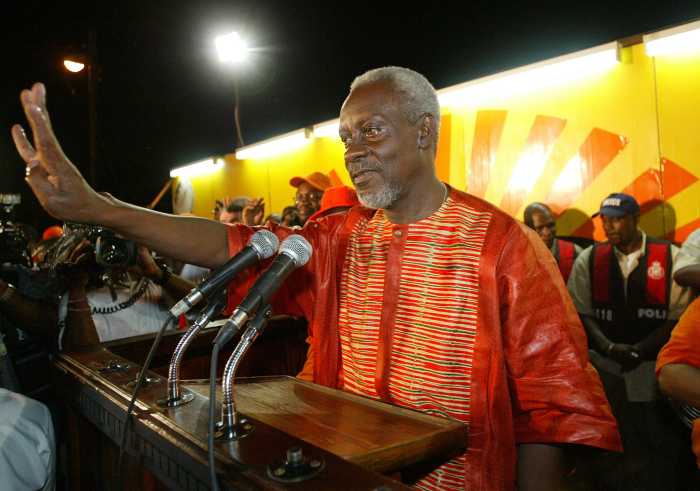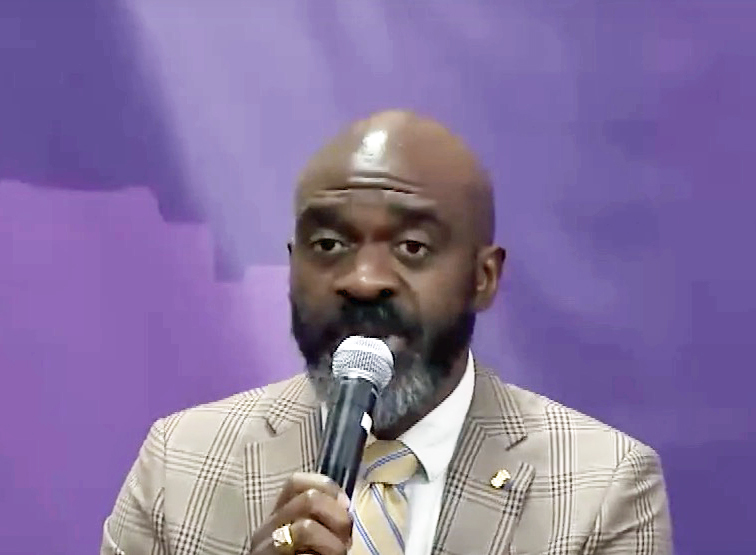The coronation of Jamaican royalty has always been multi-dimensional.
A majority of the monarchs obtained their high regard and scepters after defying indomitable odds and due to their perseverance, talent and unique abilities emerged victors, champions and rulers of their realm.
Born in Kingston, Jamaica, on May 24, 1938, Cecil Bustamante Campbell surpassed obstacles and is one of the champions who probably symbolized the duality of a regal status by being crowned prince and king.
Acclaimed as boxer Prince Buster, the Jamaican who transitioned to become a music innovator and producer honed his craft and emerged the pioneering, king of ska.
The prince who became king died on Sept. 8 in Miami, Florida at age 78 after suffering from heart ailments resulting with a series of strokes, one in 2009 that left him paralyzed and unable to walk.
Regarded internationally as the individual that revolutionized Jamaica’s music industry, Prince Buster’s reign preceded Bob Marley’s rule as the king of reggae and predated the birth of the beat the legend ruled with the Wailers.
Named by his parents with the middle name Bustamante, he inherited an association with Sir Alexander Bustamante, one of Jamaica’s founding fathers.
Reputedly a formidable street fighter, his earliest aspiration was to be a boxer therefore it was an easy decision to adopt a title for the ring.
Allegedly he was dubbed Prince Buster by seasoned trainers who noticed his potential to be a young, king.
How he emerged from being a force to reckon as a boxer to the crowned champion of ska allegedly evolved from being hired by Sir Coxsone Dodd to being a security guardian.
The music innovator who established Studios One Records and also the individual who steered Marley to world acclaim proved the catalyst to the ska music kingdom.
The access the boxer and security strongman was afforded during his tenure with the music producer enabled him to discover his ultimate and highest crown when he pioneered the world acclaimed music form known as ska.
Prince Buster left Dodd in the late 1950s to set up his own record store, he named it Buster’s Record Shack.
Simultaneously, he also established his own sound system which he named, the Voice of the People.
Influenced by the sound system innovations of Tom The Great Sebastian, Prince Buster’s “Voice of the People” system quickly became one of “the island’s most revered, rivaling legends the likes of Dodd and Duke Reid,” who were the forerunners and rulers of the music form.
From his own stable Prince Buster produced and recorded a litany of hits, among them: “Ten Commandments of Love,” “Forward March,” “Black-head Chineyman,””Wash Wash,” “Madness Is Gladness,” “Enjoy Yourself,” “Judge Dread,” “Burke’s Law,” “What A Hard Man Fi Dead,” “Humpty Dumpty,” “30 Pieces of Silver,” “They Got To Go” and too many more to list.
“Ten Commandments” debuted on the Billboard Hot 100, becoming a big hit single in America.
In 1965, he was the first Jamaican to have a top 20 hit in Britain with a track called “Al Capone.”
Prince Buster traveled extensively and particularly in the United Kingdom he was regarded as Jamaica’s first international superstar.
According to Britain’s Guardian newspaper — “his influence went far beyond Jamaica. He became rich, living the high life of sharp suits and fast cars, though remaining an aggressive champion of the underdog.”
“He toured the country regularly to sell-out crowds,” and appeared on “Ready Steady Go” a TV dance program there, the newspaper reported in an obituary.
It was in England in 1964 that he met Muhammad Ali, the world heavy-weight boxing champion.
The proven “greatest” invited him to attend a Nation of Islam meeting at Mosque 29 in Miami, Florida and the Prince, king and producer attended and converted to Islam.
He changed his name to Mohammed Yusef Ali and established his own imprint label which he named “Islam.”
Some claimed that Jamaica’s Mohammed Yusef Ali was a carbon copy of America’s Muhammad Ali.
In similar braggadocio-style, the former boxer exalted his prowess and ‘greatness.’
One of the releases on his Islam label included a version of Louis X’s “White Man’s Heaven is a Black Man’s Hell.”
Since that time, Prince Buster not only parodied the lifestyle of a devout Muslim but also eased away from the music scene though he produced records for some of the new breed of Jamaican DJs, including Big Youth and Dennis Brown.
By the early 1970s, when rock steady was transitioning into roots reggae, Buster’s influence and interest began to wane — ‘partly because as a Muslim he found it difficult to move along with the Rasta-influenced tide.’
It was then that he moved to Miami to pursue various business interests, including the running of a jukebox company he had established.
Reportedly his influence resurfaced in the late 1970s when his music emerged the key inspiration for the ska revival in Britain. In 1978, a London band called Morris and the Minors renamed themselves Madness after Buster’s classic song “Madness is Gladness.”
And in 1978 their first single, “The Prince” skyrocketed to the top 20.
In addition, the band later reached number seven with a reworking of the Prince Buster song “One Step Beyond.”
Many of Prince Buster’s compositions were released on the Blue Beat label in the UK.
For a time, a blue beat ska movement erupted with a segment of the UK population identifying with black and white fashion stylings while infusing other unique identifiers highlighted by the Jamaican music becoming the choice for many who declared themselves mods and skinheads.
Prince Buster did not indulge in his British resurgence but reappeared onstage in the late 1980s and 1990s touring Japan with ska legends, the Skatalites as his backing group. He even recorded again in 1992 and in 1998 re-entered the British charts for the first time in 31 years with a new version of an old song, “Whine and Grind.”
Many described his comeback as “low key.”
Prince Buster made a cameo appearance in the 1972 movie “The Harder they Come.”
He was featured in the Jimmy Cliff blockbuster in the role of a DJ.
In 2001 he was awarded the Order of Distinction by the Jamaican Government for his outstanding contribution to the music industry.
On hearing of the passing of the ska legend, Olivia “Babsy” Grange, Jamaica’s Minister of Culture, Gender, Entertainment and Sport said: “It is with regret that I learn of the passing of the iconoclastic Prince Buster — a true stalwart in the development of Jamaican popular music.
“Those such as myself, coming of age in the period when Prince Buster first emerged on the scene had the opportunity to follow his career and the growth of Jamaican popular music through his innovative productions.
“Utilizing Jamaican ritual sounds, Prince Buster effectively infused elements of revivalism, such as hand clapping and African-inspired Nyabinghi drumming into his music.
“Prince Buster went to Wareika Hill and produced Rastafarian leader and master drummer Count Ossie, leading his drummers and accompanying the Folks Brothers to create that evergreen favorite ‘Oh Carolina’, a song which effectively introduced Rasatafari music to the Jamaican public and to the world.”
Ironically, that same 1960’s track also introduced Grammy-winner, Shaggy to a broader audience when the reggae, deejay released “Oh Carolina” in 1993.
Grange a veteran of the music industry who managed the careers of Shabba Ranks, Damian Marley, Bounty Killer and others added that Prince Buster was “as an entrepreneur, he set himself up not only as a producer but also as sound system operator, singer, promoter and distributor; paving the way for others in establishing a bonafide Jamaica Music Industry.
The parliamentarian concluded quoting lyrics from his “Hard Man Fi Dead” saying:
“They pick him up / They Lick him Down / Him bounce right back / What a hard man fi dead.”
“The memory of Prince Buster and his legacy through his vast and diverse catalogue will never die.
“On behalf of all Jamaicans and Prince Buster’s international fans, I extend deepest condolences to his widow and children.”
Prince Buster performed at the 2002 Legends Of Ska Festival in Toronto, Canada.
Other latter-day appearances include: the Sierra Nevada World Music festival in 2003; the 2006 Boss Sounds Reggae Festival in Newcastle upon Tyne, the 40th Montreux Jazz Festival in Switzerland with the Delroy Williams Junction Band and the 2007 UK Rhythm Festival.
British, reggae, radio personality David Rodigan posted a condolence message on social media saying: “It is with great sadness that I have just learned of the death of Jamaica’s music icon and pioneer, Prince Buster.”
He described the prince/king as “a true music legend.”
“Prince Buster wasn’t just a ska pioneer,” Rodigan added, “He also produced one of Jamaica’s first, ever, dub albums ‘The Message’.”
Growing up in Kingston, this Insider became an eye-witness to Prince Buster’s majesty. From my Excelsior school I was reminded regularly of his extraordinary, achievements.
On the highest hill in the Mountain View area, Prince Buster built his palace.
Shaped in the design of a crown, the glass-construction was the sole residence there and was visible to everyone traversing the area. As a child I marveled at the royal construct and the height he chose to build a view of his kingdom.
His legacy will endure.
The king of ska, Mohammed Yusef Ali aka Prince Buster is survived by his wife, Mola Ali. During their 47-year marriage, together they had three children.
Catch You On The Inside!


























